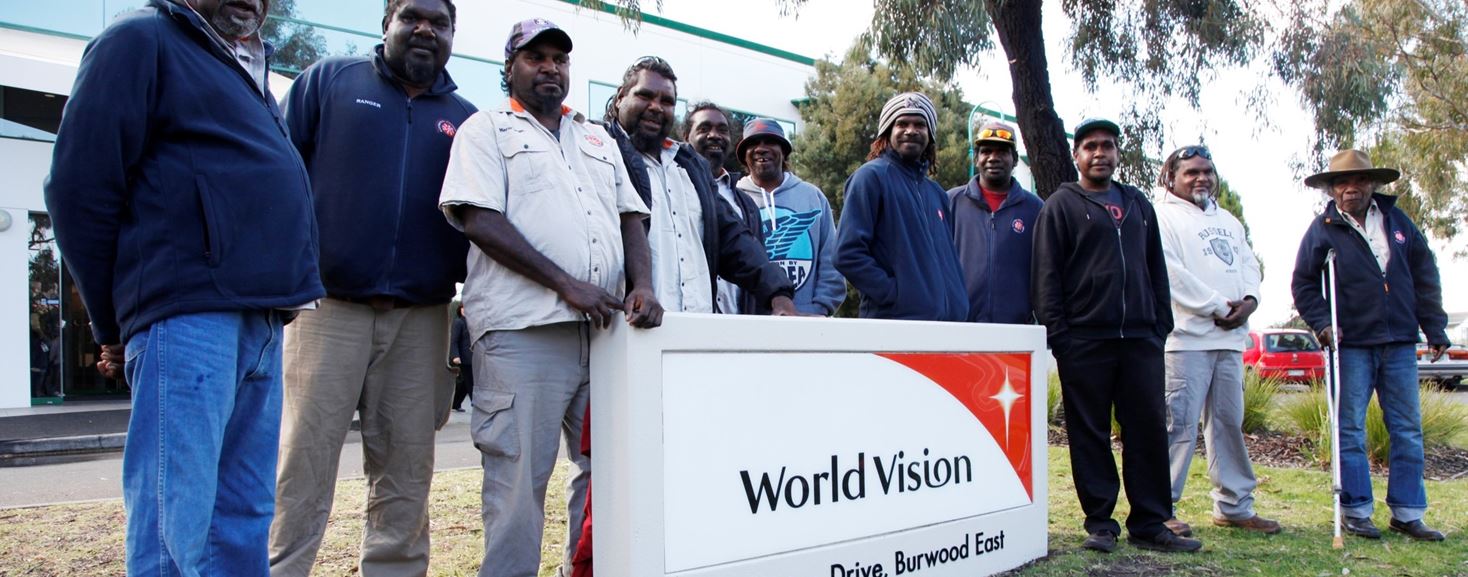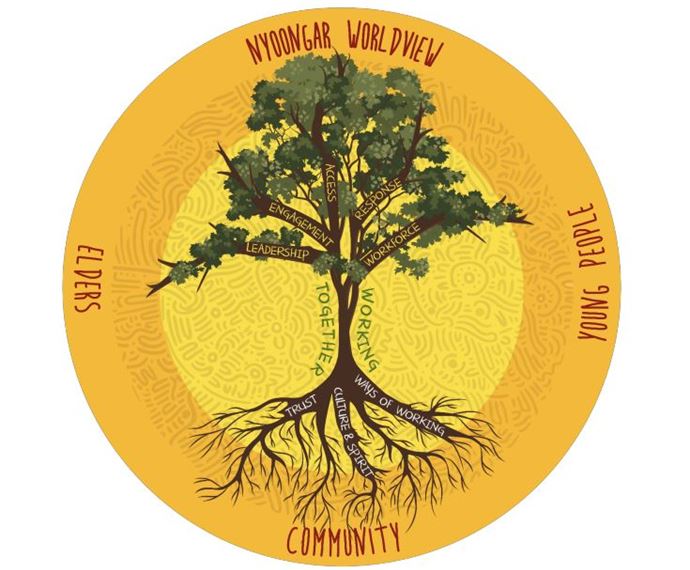Developing initiatives to address disadvantage
Kalyuku Ninti – Puntuku Ngurra Ltd, also known as Kanyirnpa Jukurrpa (KJ), was established in 2005 as a division of the Western Desert Lands Aboriginal Corporation (WDLAC), the holder of the Martu Native Title.
WDLAC’s focus is to manage access to Martu lands and the negotiation of agreements with exploration and mining companies, with KJ involved in the preservation of cultural knowledge, looking after Martu country, and the delivery of training and employment programs for the Martu people.
Since 2010, Lotterywest has provided more than $1.9 million in grants to support the organisation across a range of projects. KJ were able to expand its Martu Leadership Program to address entrenched social and economic disadvantage across the community through one of these grants.
To expand the Martu Leadership Program to address entrenched social and economic disadvantage across the community.
Kalyuku Ninti - Puntuku Ngurra Limited
6/25/2018
$1,278,149
Lotterywest
$400,000
Pilbara
Aboriginal and Torres Strait Islander people
- Engagement with a range of government stakeholder to discuss how to address social issues.
- Presentations about the Program to Indigenous-led organisations and in remote communities.
- Deeper engagement with a range of government agencies including cultural immersion camps with senior WA police officers, the Pilbara Magistrate, the Department of Corrective Services, and Roebourne Regional Prison.
- The organisation was able to adapt through the impacts of COVID 19 with significant benefits achieved.
- The program has become a catalyst for building confidence, unity, ideas and designing activities that aim to address a range of social issues.
- Ideas emerged about how to address issues like alcohol, incarceration, mental health and family and domestic violence in a local context.
- Participants have engaged with the government on these subjects with funding now secured to roll out pilot projects through the Mental Health Commission, the Department of Justice, and the Department of Corrections amongst others.
- Ensuring program coordinators are aware of their own cultural assumptions.
- It was identified that engagement and evaluation methods could be improved by shifting from an individual towards a community focus / collective impact.

Opportunity
The Martu people’s traditional lands include the Great Sandy Desert in the north, stretching south almost to Wiluna and east to Jupiter Well. The Martu were among the last first nations people to come into contact with European Australians from the 1920s [1] through to the 1960s.
Over a couple of generations, many Martu people have gone from living a traditional way of life, in the desert, to living a modern Australian lifestyle. Contact with mainstream Australia has had a significant impact on the Martu people, with many of their social structures, leadership systems, governance, learning, and lore being weakened.
In 2002, the Martu people were awarded native title over 13.6 million hectares of the Western Desert. According to KJ, there are up to 1,000 Martu living in the Pilbara and a further 1,000 living in other locations across WA.
There have been several successful initiatives to reconnect Martu people with their own country, culture, and community and to rebuild their confidence through KJ On-Country programs. However, there is a significant gap in knowledge and capacity to engage and effectively communicate priorities, methods, and aspirations to mainstream policy makers.
Approach
To address this issue, KJ developed the Martu Leadership Program (the Program) which uses education, capacity building and governance development to address entrenched social and economic disadvantage. As part of the Program, participants develop confidence and capability as well as improve their engagement with mainstream agencies. After an initial pilot program commencing in 2014, this grant enabled KJ to support the expansion, development, and consolidation of the Program over a two-year period.
The Program creates opportunities for formal and informal learning via workshops and excursions, with activities generally managed in groups of 10 to 15 people.
The grant enabled KJ to move the pilot to a second phase, expanding the program in three key areas:
- Reaching more Martu adults in the communities of Newman, Jigalong, Parnngurr, Punmu and Kunawarritji with an additional 40 participants.
- Engaging with children through education sessions in school, the community and on country, entrenching a new set of role-modelling messages.
- Enabling lessons and methods from the program to be taken to groups in the West Pilbara.
Impacts and outcomes
As part of the Program, eight Martu women travelled to Melbourne to enhance their presentation and engagement capabilities with external stakeholders. Twelve Martu from the Program also travelled to each of the remote communities (Jigalong, Punmu, Parnngurr, Kunawarritji) to present the program with approximately 100 Martu community members.
Outcomes included:
- Engagement with a range of government stakeholder to discuss how to address social issues.
- Presentations about the Program to Indigenous-led organisations and forums.
- Requests to present to other organisations (Ngurrara native title group, native title groups in Wiluna and the South-Eastern Ranger Forum).
Overall, there was deeper engagement with a range of government agencies including cultural immersion camps with senior WA police officers, the Pilbara Magistrate, the Department of Corrective Services, and Roebourne Regional Prison.
Participants reported increased confidence in joining in community discussions and engaging in productive dialogue with government agencies and other stakeholders. Fifteen of the 22 participants said they were learning and engaging in some activities with support and seven said they were confident to try out new activities and speak up in a variety of situations.
As a result of the program, the Martu people have improved mainstream understanding of their culture through on-country cultural immersion camps with senior WA Police. Martu now have a backlog of demand from senior government agencies to learn how to better engage with them.
“You are stepping up for our communities, and I am proud of you for that. You are starting to raise big issues, like wama (alcohol) and I am proud of you for that. You are giving me hope.”
Senior Martu community member
What worked
Increased knowledge and confidence promotes community development initiatives
Over time, the program has become a catalyst for building confidence, unity, ideas and designing activities that aim to address a range of social issues. During the program, ideas emerged about how to address issues like alcohol, incarceration, mental health and family and domestic violence. Participants have engaged with the government on these subjects with funding now secured to roll out pilot projects through the Mental Health Commission, the Department of Justice, and the Department of Corrections amongst others.
Adapting to changing contexts
The organisation was able to adapt through the impacts of COVID 19 with significant benefits achieved. For example, Martu-run initiatives were delivered on country and as a result, the Wama Wangka program, which focused on alcohol abuse, was developed with in-community cultural education workshops, trips on country and planning meetings for a post-COVID program.
This also led to activities in Newman, which resulted in the development of a Newman leadership Program, with a distinctive focus given its mainstream, urban setting. The group is now playing an important role in programs such as Kids on Country and the Newman Police Liaison Group.
Key challenges
A shift in focus from individual to the collective
The program coordinators were aware they had to avoid being driven by their own cultural assumptions but would need to be responsive to the situation to be consistent with Martu priorities and culture. One example of this was shifting the focus from individual participation in the program to a group focus, with the evaluation of the success of the program also focused on collective impact rather than on the individual. This feeds into the community development approach that the program has adopted.
REFERENCES
- Somerville, C., K. Somerville, and F. Wyld, Martu storytellers: Aboriginal narratives within the academy. The Australian Journal of Indigenous Education, 2010. 39(S1): p. 96-102.
Learn about wellbeing
Understand how your community is going to help you to better target and plan your project.
Ready to plan your project?
Understand your vision, plan your impact and report on the outcomes of your project with three easy interactive tools in the Community Impact Planner.
Acknowledgement of Country
The Western Australian Community Impact Hub acknowledges and pays respect to the Traditional Owners of the land on which we are based, the Whadjuk people of the Noongar Nation and extends that respect to all the Traditional Owners and Elders of this country. We recognise the significant importance of their cultural heritage, values and beliefs and how these contribute to the positive health and wellbeing of the whole community.
![Picture1[1]](/media/mavdfuwn/picture1-1.jpg?anchor=center&mode=crop&width=690&height=570&rnd=133051352252900000&quality=80)
